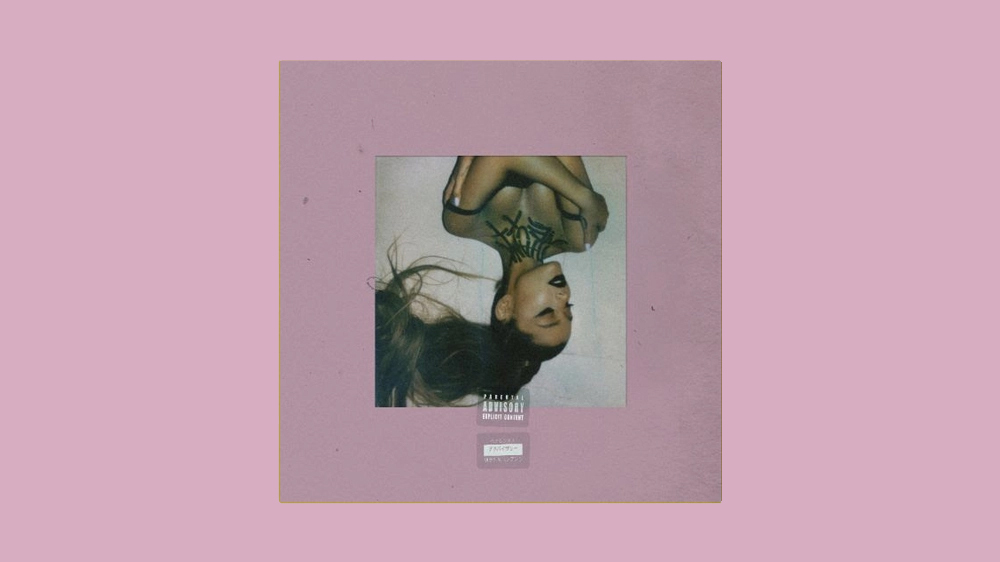The past year has been a breakthrough year for Ariana Grande. That’s not to say that she wasn’t already a pop superstar; you’d be hard to find anyone who hadn’t at least heard of her prior to 2018, with 9 top 10 hits from her first three albums (and a few superstar collaborations).
When it comes to the numbers, though, nothing she’s done before has ever quite hit the level of cultural ubiquity she achieved with ‘thank u, next’, the lead single off the album with the same name.
Grande was absolutely everywhere. The irresistably meme-able video sparked a countless number of think-pieces about its wholesome approach to breakups. Not to mention the flood of ‘thank u, next’ joke tweets which are still streaming in til this day—’thank u, next’ has become a commonly-understood phrase in itself. It put her in—or rather made her a central part of—the cultural conversation.
thank u, next (the album) has her explicitly coming to terms with her newly-found capital-S Superstardom. On ‘NASA’, she states ‘you know I’m a star’, delivered almost as an aside, because at this point it’s not up for debate or worth consideration—she just is a star.
Opening track ‘imagine’ has her asking an unnamed love interest to ‘imagine’ an idealised world, but unlike John Lennon’s yearning for an impossible world of peace, hers is a world where she and her lover can do things together without the baggage put on them by fame.
It’s a world where they have nothing to worry about other than ‘order[ing] pad thai’. They ‘never act this regular’, because her status makes this world one that they can only imagine. Even so, Grande references her media-constructed mythos in the song itself; her ex, the late rapper Mac Miller, had ‘Imagine’ tattooed on his arm. Later, in the ethereal, strings-backed ‘ghostin’, Grande (likely) sings about her struggle with coming to terms with Miller’s death while being in a relationship with Pete Davison.
While engaging with her own narrative could’ve easily come across as narcissistic or self-serving (see: Taylor Swift’s reputation), Grande manages to do so without drawing too much emphasis to it. ‘thank u, next’ references her public image more explicitly than any other track in the album, but it does so in a way that feels playful, more charming than self-obsessed.
It would, after all, feel strange if she didn’t engage with the highly-publicised events in her life; on thank u, next she manages to walk the thin line between turning herself into a caricature of her public persona and pretending none of it exists. She clearly knows how to play the game, blending a real sense of genuine personal emotionality with the cultural narrative surrounding her.
But what thank u, next lacks is a clear answer to who Grande is as a musician. Her past is a key focus here, but what about her present and who she’s developed into? Who exactly is Ariana Grande?
The songs themselves are a sonically cohesive package, moreso than last year’s strong but uneven Sweetener. Where her 2017 efforts had a clear division between the bouncy, experimental pop-r&b songs produced by Pharrell and the glossy pop fare produced by Max Martin and co, thank u, next is much more consistent. The album leans into trap-pop heavily; from the dark 808 bass of ‘bad idea’, to the uncredited “skrrt, skrrt” ad-lib in ‘in my head’, to the undeniable trap-rap flavour of ‘7 rings’, Grande rides the 2018/19 trap-pop soundscape with ease.
But what thank u, next lacks is a clear answer to who Grande is as a musician. Her past is a key focus here, but what about her present and who she’s developed into? Who exactly is Ariana Grande? Accusations of brownface—Grande is Italian-American, but speaks with what is arguably a blaccent, and has over time presented herself with increasingly darker skin—and a hard left swerve into r&b and hip-hop add a layer of artifice to her image.
The album is well-crafted, and none of the songs really disappoint. It’s unlikely that anyone will be disappointed with what’s on offer her; really, ‘imagine’, ‘needy’, ‘ghostin’ and ‘thank u, next’ stand out as some of the best songs in her discography. Still, thank u, next feels like a minor step backwards in terms of her development as an artist compared to Sweetener, which had higher highs but lower lows; where she showed promise and a willingness to experiment before, here she’s ironed out her image and sound, losing some of what made her interesting.

Mikhail Hanafi

